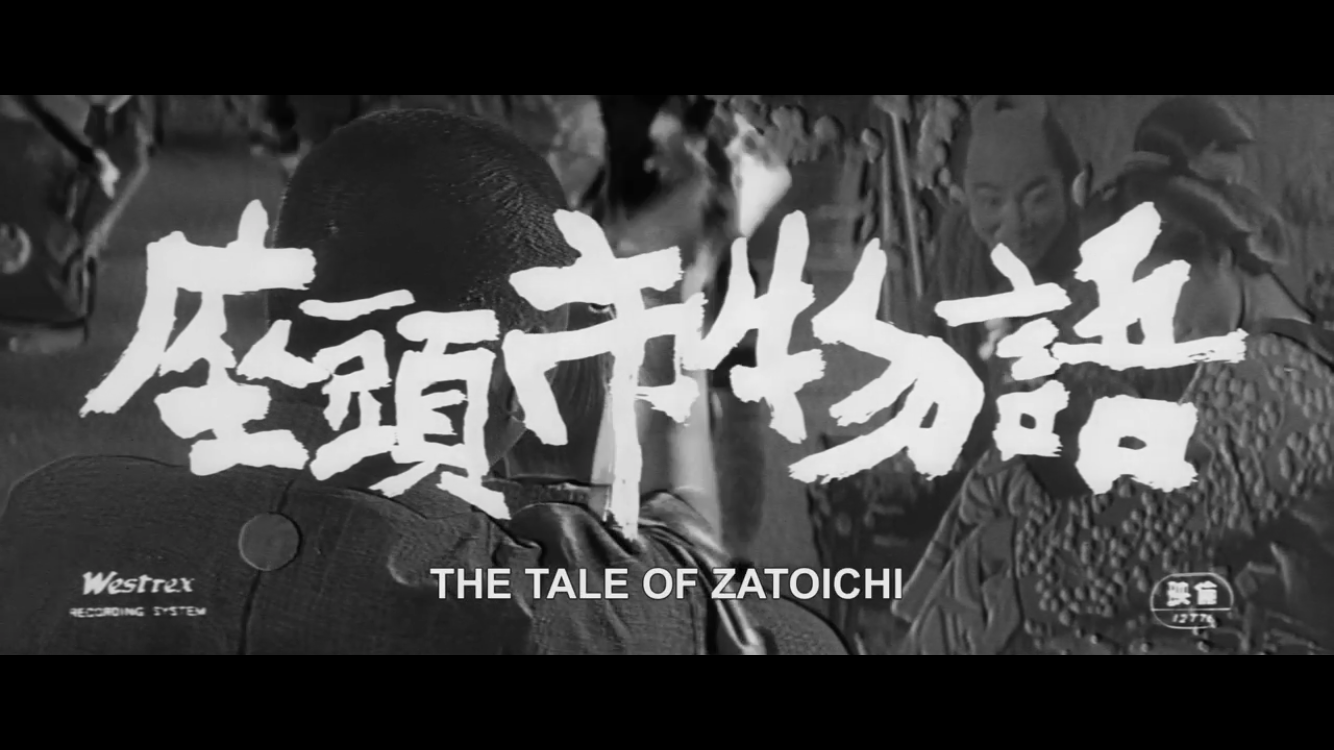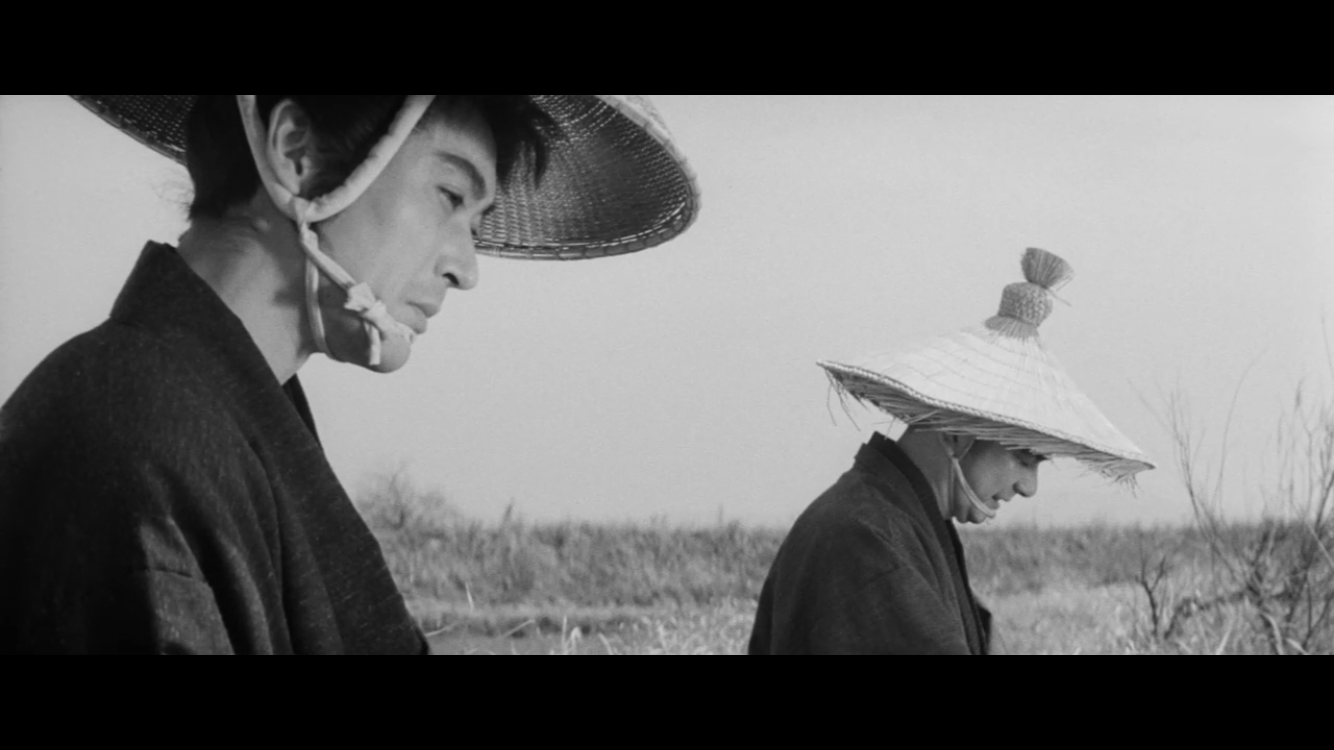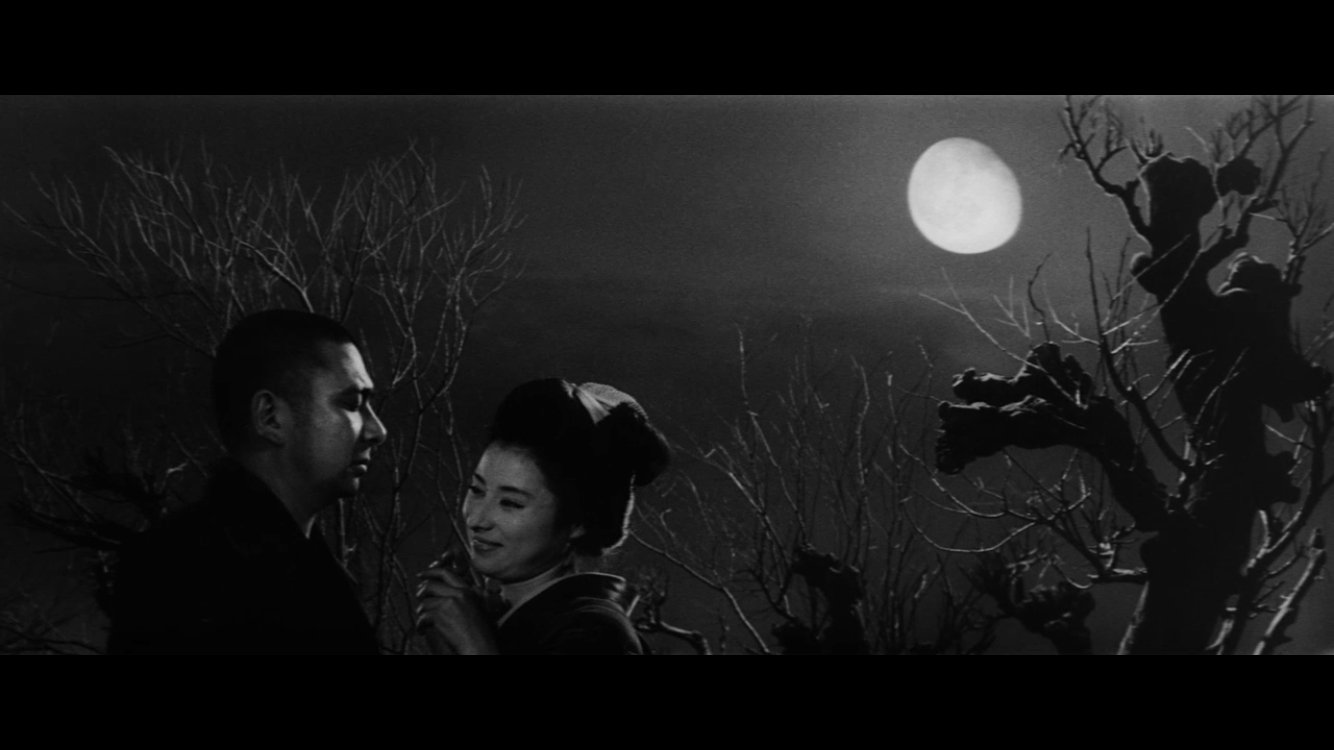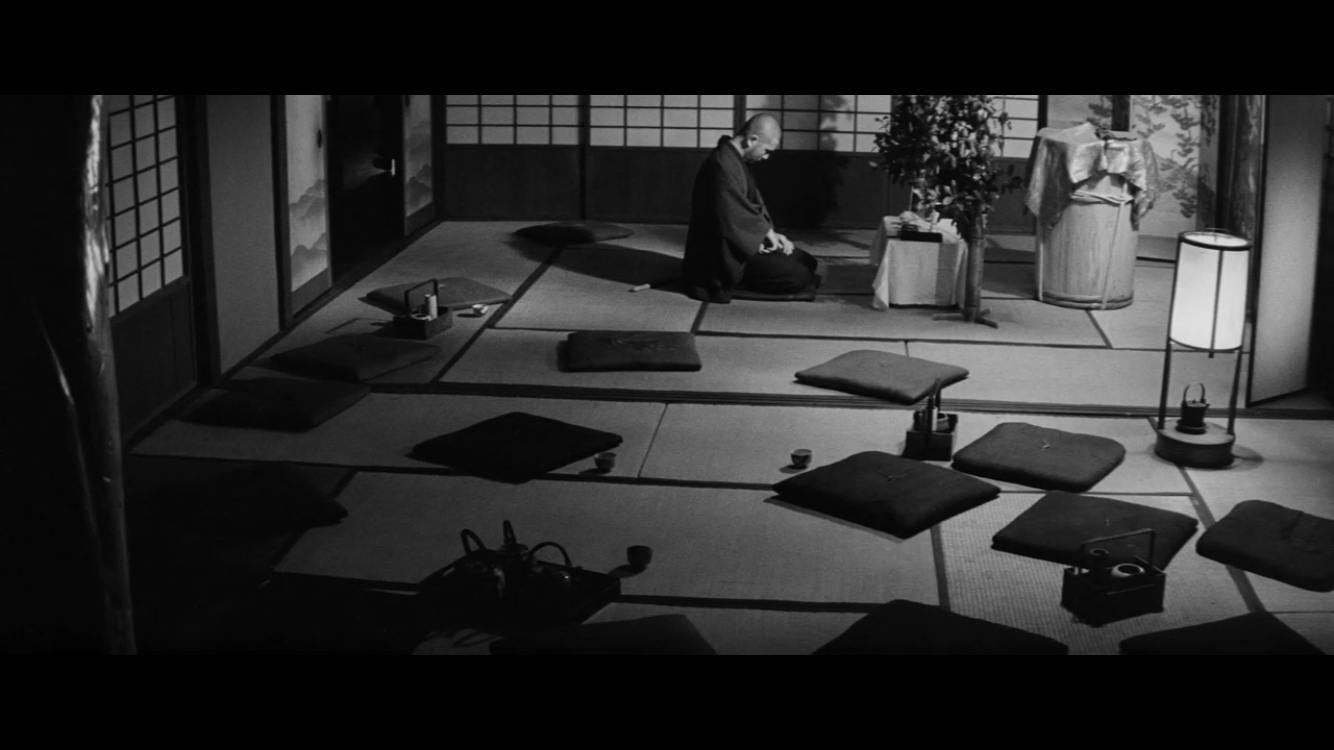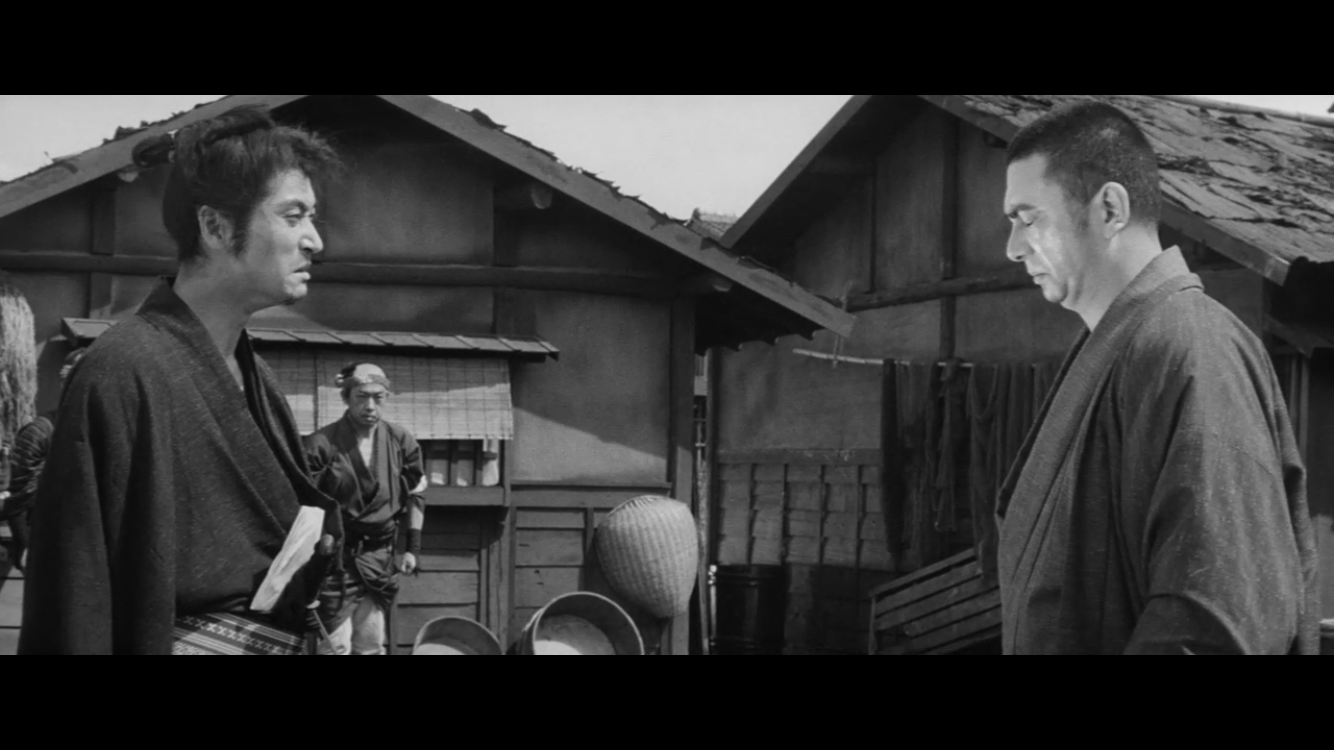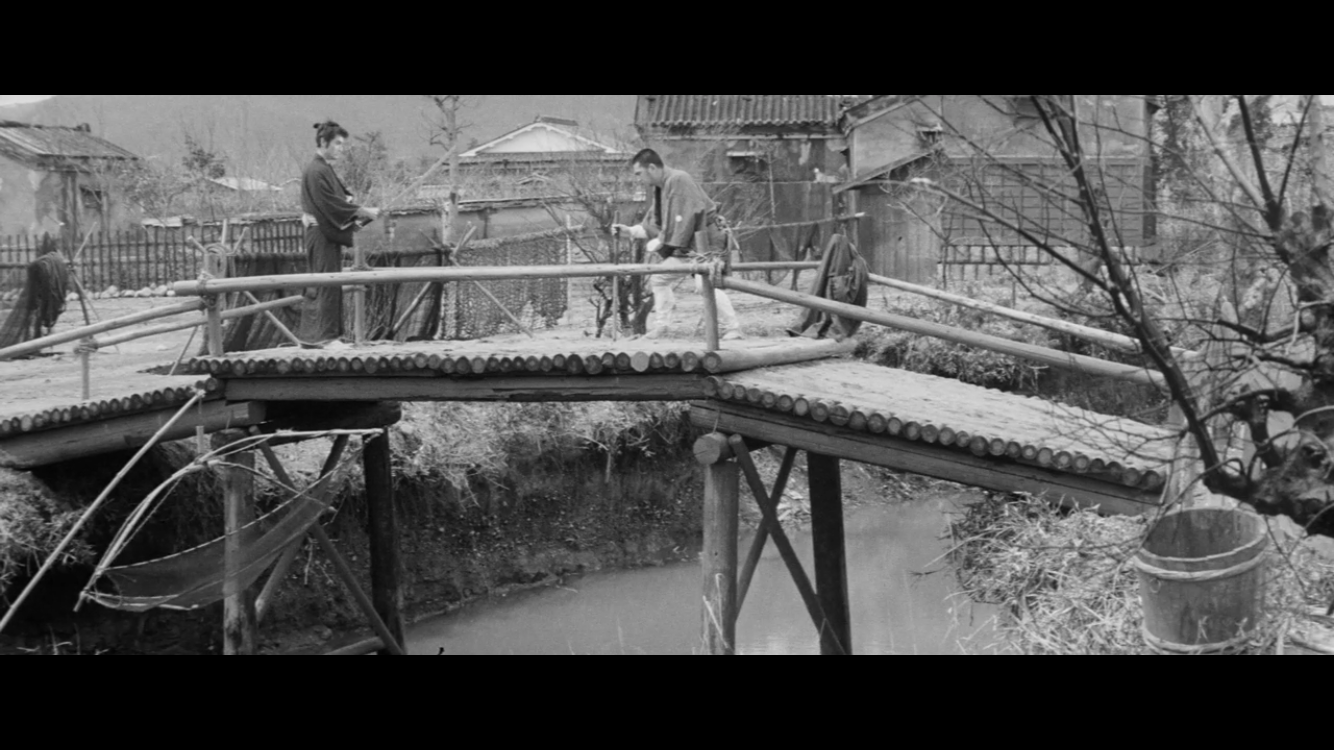The Tale of Zatoichi (1962)
Directed by Kenji Misumi
Contains spoilers.
Samurai films are to Japan what Westerns are to America. They're an important genre and, just like Westerns, there's a lot more to them than just swords. The Tale of Zatoichi, which would spawn 25 sequels, a television series lasting 100 episodes, and a remake in 2003, falls more on the dramatic side, ending with a (dramatic) fight, one of only two fights in the film and three instances of sword use.
Shintaro Katsu stars as the titular Zato Ichi, a blind masseur who's come to the countryside to cash in on some hospitality from an old acquaintance, yakuza boss Sukegoro. In doing so, he gets recruited to help the gang in their potential war with their nearby rival, Shigezo, as Ichi is known to Sukegoro to be a skilled swordsman. Shigezo has already hired a samurai of strong repute, Miki Hirate, to act as his secret weapon in any battles.
Ichi and Hirate befriend each other after fishing at the same lake, gaining mutual respect and admiration. As each gang vies for advantages, Ichi and Hirate fish, drink, and talk together, content to let the bosses do what they want and stay away from fighting. But the situation gets complicated, and the two end up on opposite sides of a duel.
From the start, Katsu's Ichi appears to be arrogant. Ichi's blindness prevails on screen, fully capturing what could be the mannerisms of a blind man. He's smart, but also very aware that he's smart, sometimes coming off as a bit of a jerk; he's skilled and very capable. Behind this lies honor to the extreme, a testament to bushido despite working for the yakuza and frequently being discourteous. He cares very much for the sanctity of life, only willing to cut a man down when forced to and trying hard to protect the people who need it. Shigeru Amachi as Hirate is very similar. Both are handicapped in one way and also have a vice; Hirate drinks and suffers from tuberculosis, while Ichi gambles and is, obviously, blind. The two end up becoming fast friends who happen, unfortunately, to be on opposite sides of a conflict.
The Tale of Zatoichi plays out like a small-scale drama more than anything else. It takes place in the countryside between two, small, yakuza gangs, and revolves around a small cast. But, while watching, nothing seems as important as this story. Misumi and Katsu do an incredible job of making Ichi's story important and pulling you into his world. His struggle is captivating. Ichi tells how he used to be a legitimate masseur and then, three years ago, how he learned the ways of the sword so that he could prove himself to be more than just a blind man. In 30 seconds he goes from kind of a jerk to sympathetic to badass.
While Ichi is an honorable samurai, he is also very respectable. He acts selflessly to protect people who would otherwise be unable to protect themselves. What was a romantic backstory turns into a romance involving Ichi. One of the gang members, Tate, is trying to push his sister, Otane, into dating his friend and fellow gang member, Seisuke. After Otane's persistent refusal, Seisuke becomes offended and controlling, attacking her. Through sly planning, Ichi appears to save her; he doesn't kill Seisuke or rebuke him, but rather provides himself as a simple witness because, as soon as he shows up, Seisuke gets scared and stays motionless, thinking that Ichi won't notice him (as he pretends not to). This shows us that not only is Ichi smart and a good swordsman, but that he also has a good heart.
Having a fight scene that lasts all of 30 seconds is beyond modern understanding, while 53 years ago Misumi crafted a lasting drama through an exploration of simplicity.
Misumi's direction brings us an intriguing character with alarming amounts of depth in a movie that doesn't feel dated. The acting feels as modern as any other movie. The cinematography, as well, is rich and skillful. While some scenes feel like an exploration of film technique, the techniques used also succeed far more often than not and come across as somewhat arthouse. In fact, The Tale of Zatoichi feels very much like a play. The acting, the story, and the general style makes me feel as though I'm in the middle of a play.
The simplistic sets and focus on characters, the dialogue, the body language, something about Zatoichi makes it feel incredibly well presented. Modern movies have such a focus on being realistic that they can sometimes forget that they're trying to portray a story, and can end up being illegible in their quest for gritty reality. Having a fight scene that lasts all of 30 seconds is beyond modern understanding, while 53 years ago Misumi crafted a lasting drama through an exploration of simplicity. This isn't a complicated story, they aren't complicated characters, all that he has to get across is a little understanding and the magic is done.
Misumi's production brings together a well rounded cast centered around a dramatic epic that takes you back 200 years to a different time, encapsulating you in beautiful traditions and cultures, and finally culminating in a satisfying and emotionally charged climax between Ichi and his friend, Hirate. It isn't until these closing scenes that we really start to see Ichi. His emotion, his respect, his honor, and his anger at those who can't hold onto such simple values. We go from seeing Ichi taking advantage of a gambling den, to becoming friends with a man who should be his enemy, then angrily mourning his loss, and finally trying to teach the yakuza a lesson in humility.
- Acting – 14 / 20
- Story – 14 / 20
- Cinematography – 16 / 20
- Soundtrack – 7 / 10
- Entertainment Factor – 8 / 10
- Drama/Action – 9 / 10
- Other – 10 / 10
TL;DR: The Tale of Zatoichi is not the best Japanese drama, nor the best samurai film. The famed Akira Kurosawa has that honor, but Kurosawa never spawned a franchise of 26 films and a television series. That's not to say that he couldn't, but there's something so intrinsically intriguing about the character Zatoichi that just begs for more. The drama throughout is superb and emotions are touching, though the action is not all there.

